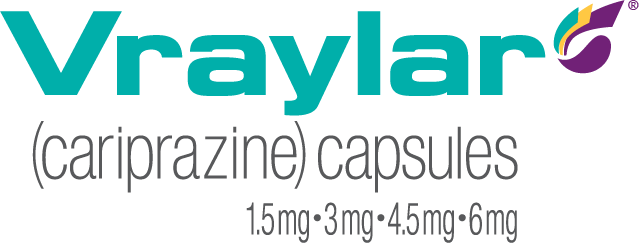Foods Can Affect Your Moods
Dr. Dave Scheiderer: Hi. I'm Dr. Dave, a board certified psychiatrist. The food you eat has an important influence on how you feel. Nutrition and diet can affect your health, energy, and sometimes your mood. As such, eating well benefits everybody, and for people with bipolar I disorder, being aware of what, when and how much you eat can help functioning.
If your body has the nourishment it needs, you may see benefits to your overall health. Now, let's talk about mood and food for a minute. Foods with low nutritional value and you know what they are, chips, candy, etc., are bad for you, but did you also know that these foods can trigger mood swings, depression, mania? It's important to prepare healthy snacks so you have something ready when you're hungry. That way you'll be less tempted to go for that very junk food.
Something as simple as hard boiled eggs, cut vegetables dipped in guacamole or hummus, a handful of nuts, all of those things are important to have on hand so you do not resort to the use of those junk foods.
Now, as many of us know, serotonin is an all important factor in improving our moods and maybe even stabilizing them. Foods that increase your production of serotonin include leafy green vegetables, seeds, oily fish like salmon and tuna, poultry, and eggs.
Now, in addition to being careful about what you're eating, the timing of when you take your meds relative to your meals, is important. Make sure that you're following medical guidance about whether to take your medication with or without food.
Check with your health care provider to see if they have any additional tips, including ones that might be specifically tailored to you and your overall health. Diet modifications like these may contribute to an improvement in mood and energy.
Foods Can Affect Your Moods†
Text on screen
Foods Can Affect Your Moods
Dr. David Scheiderer, MD, DFAPA
Board-certified psychiatrist
Dr. David Scheiderer
Hi, I’m Dr. Dave, a board certified psychiatrist.
The food you eat has an important influence on how you feel. Nutrition and diet can affect your health, energy, and sometimes your mood. As such, eating well benefits everybody, and for people with bipolar I disorder, being aware of what, when, and how much you eat can help functioning. If your body has the nourishment it needs, you may see benefits to your overall health.
Now, let’s talk about mood and food for a minute.
Text on screen
Stay away from foods with low nutritional value
Dr. David Scheiderer
Foods with low nutritional value, and you know what they are: chips, candy, etc., are bad for you. But did you also know that these foods can trigger mood swings, depression, mania? It’s important to prepare healthy snacks so you have something ready when you’re hungry. That way, you’ll be less tempted to go for that very junk food.
Text on screen
Try foods like:
- Hard-boiled eggs
- Vegetables
- Guacamole
- Hummus
- Nuts
Dr. David Scheiderer
Something as simple as hard-boiled eggs, cut vegetables dipped in guacamole or hummus, a handful of nuts, all of those things are important to have on hand so you do not resort to the use of those junk foods.
Now, as many of us know, serotonin is an all important factor in improving our moods and maybe even stabilizing them.
Text on screen
Improve serotonin with:
- Leafy green vegetables
- Seeds
- Salmon
- Tuna
- Poultry
- Eggs
Dr. David Scheiderer
Foods that increase your production of serotonin include leafy green vegetables, seeds, oily fish like salmon and tuna, poultry, and eggs.
Now, in addition to being careful about what you’re eating, the timing of when you take your meds relative to your meals is important. Make sure that you’re following medical guidance about whether to take your medication with or without food.
Check with your healthcare provider to see if they have any additional tips, including ones that might be specifically tailored to you and your overall health. Diet modifications like these may contribute to an improvement in mood and energy.
Text on screen
[AbbVie logo]
© 2021 AbbVie. All rights reserved.
UNB149001 07/21
*Terms and conditions apply. Available to commercially insured patients only. See Terms and Conditions for full details.
†This content does not constitute medical advice or establish a patient-physician relationship. Please talk to your healthcare provider about your specific treatment needs.
